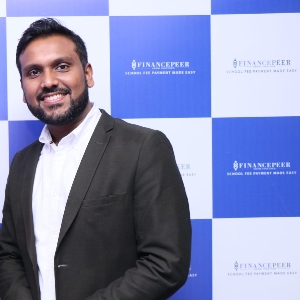World's Leading Retail Chain Says Mall Culture is Never Going to Die in India India is more than ready for brick and mortar retail to grow fourfold says LuLu Exchange's Abeed Ahamed
Opinions expressed by Entrepreneur contributors are their own.
You're reading Entrepreneur India, an international franchise of Entrepreneur Media.

Can both traditional brick and mortar retail and e-commerce thrive together? The raging debate over this topic has been going on from almost a decade. But the industry players still seem to be in a dilemma when it comes to choosing one over the other. E-commerce giants like Amazon and Flipkart are planning to enter brick and mortar space of retailing, while the traditional retail players are opting for a digital gateway. Most industry players are chalking out omni-channel retailing aspects for their long term business plan.
In an exclusive interview with Ritu Marya, Editor-in-chief, Entrepreneur India, Abeed Ahamed, Founder and CEO of Middle East's top Indian retailer LuLu Exchange spoke about why the group is bullish about the brick and mortar retailing business in India while accepting omni-channel retailing needs.
"The Indian Brick and Mortar Story has Just Started"
Bullish about the growth of the mall culture in India, Ahamed even spoke about how investors are looking forward to invest in malls in India, a recent example also being Blackstone's decision to pump in money into India.
As "touch and feel' is still an important element of selling in the retail space, and will continue to be so for the next few decades, Ahamed said he feels that in India, brick and mortar story has just started. "The mall culture is not going to go away in India, but it'll spring up in different formats. India skipped an era of traditional retail and directly hopped on the e-commerce bandwagon," he said.
Challenges of Brick and Mortar Retailing in India
When it comes to the Indian retailing market, Ahamed said there are adaptations and not challenges. Laying emphasis on the consumer, he said that it is important to study consumer behaviour and their spending pattern to understand what can be offered to them.
"You need to give the consumer everything when it comes to malls. It's not just about the mall's infrastucture. In Middle East, the roads lead you straight into the parking lot of the malls. India needs to have this kind of an agenda in mind while building malls," he said.
Ahamed also said that retaining employees is a big challenge. He emphasized that businesses are driven by people and not concepts alone. "Today, getting right people onboard is becoming a huge task. People are moving from one job to another and a reason for that could be that organizations are not able to retain employees with their policies," he said.
UAE-based retail major LuLu International Exchange has grown to become one of the leading remittance and foreign exchange companies in the Middle East region. The Middle East-based group has not been into active retailing before, but is the largest exporter of garments in market.
Aiming to Disrupt Hyper-market Space in India
The group has been presenting the brand for five odd decades. Ahamed also revealed about his disruption plan for hyper-market space in India. With brands willing to enter the Indian market, Ahamed believes that there is a huge demand for brand retailing. "Hyper-market is a large format scenario. There is great excitement in this space and no restrictions. Our hyper-market plan for India will be in Lucknow and then Vizag," he said.
The group had started out in 2009, and today it's the only player in market which is doing the large format 100, 000 sq. ft. single floor market business. Talking about the new stores opening in India, he said by the end of year, LuLu will be opening 25 other outlets.










